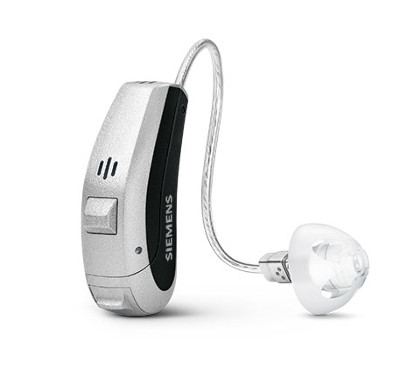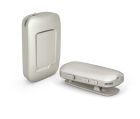
19th January 2015
Things You Need To Know When Buying Hearing Aids
Purchasing a hearing aid is a big decision, here’s what you need to know
 When you are thinking about buying hearing aids it is easy to become confused by the sheer amount of information that is available to you and the choice that is on offer. There is a massive choice of both the types of hearing aid available and brands who make them. Sometimes professionals can feel overloaded by the wealth of information. So we can imagine that for a consumer it must seem an impossible task. In the hope of making it a little easier for you, we have a few tips that we hope will help.
When you are thinking about buying hearing aids it is easy to become confused by the sheer amount of information that is available to you and the choice that is on offer. There is a massive choice of both the types of hearing aid available and brands who make them. Sometimes professionals can feel overloaded by the wealth of information. So we can imagine that for a consumer it must seem an impossible task. In the hope of making it a little easier for you, we have a few tips that we hope will help.
A complete hearing test
The first and most important thing is to get a comprehensive hearing test done. Until you know the degree and type of your hearing loss you won’t be know what the best options are for you. Visit a qualified hearing aid audiologist who will carry out a full hearing test. Hearing tests should be performed in a soundproof booth or a very quiet room for complete accuracy. The test should consist of at the very least A/C (air conduction) testing with a set of headphones and B/C (bone conduction) testing with a bone conductor.
Lifestyle issues
The audiologist should also discuss your lifestyle needs and the issues you are having day to day. An understanding of your lifestyle and the problems you are facing is imperative for making good recommendations for hearing aids and any accessories you might benefit from. Many modern hearing aids connect to wireless accessories that make a real difference to someone's ability to hear well in differing sound situations so it is important for a professional to understand where you most need help .
The explanation
After the test is finished they should be able to explain to you clearly, what the severity of your hearing loss is, and what type of loss it is. They should also be able to tell you which kind of hearing aids and which technology level will work best for you, your lifestyle needs and your loss.
Take someone with you
There will be a great deal of information to take in during the consultation, it really is advisable for you to take someone with you to your appointment. Having any kind of medical test or examination can be stressful, when you are worrying about any results it is easy to miss out on what the professional may be telling you. There is also a lot of information to remember and two heads are better than one as they say. Don’t be afraid during the appointment to make notes, if there is something you don't understand fully, ask questions. Don’t be afraid to ask the professional to write down details for you.
Take Notes
Again if the professional recommends a hearing instrument or set of instruments, don’t be afraid to ask them to write the details down. Some companies in the UK offer white label hearing aids, these are digital hearing aids that are re-named by manufacturers specifically for the company. If you are being offered instruments like that, ask exactly what the instrument is and from what manufacturer.
Consider carefully
You need to have realistic expectations of hearing aids and what they will do for you. You should have a clear idea about what exactly you want from your hearing aids. Think carefully about where you are having problems on a day to day basis, consider where solving those problems is an imperative. In this way and with this in mind you can clearly consider what technology level of hearing aid will be best for you. You need to be realistic, if you want hearing aids for a relatively sedentary lifestyle, listening to TV and Radio, some light conversation and the odd journey to the shop. Low end technology should almost meet all your needs.
However, if you have a busier lifestyle and they are imperative to deliver clarity in more complex sound situations, then higher levels of technology are what you need. The key is to understand your needs and the limitations of the technology levels. In this way you can decide clearly what you can get from what you can afford. When this is clear to you, it will make your journey with your hearing aids less stressful.
Accessories can make a huge difference
 Every hearing aid manufacturer has introduced wireless extras that can now be purchased with your hearing aids. These are all useful add ons that can help you lead the life that they are used to. For example, most modern hearing aids are wireless devices that can communicate with audio devices such as phones and TVs through some form of in between device. One of the best devices in our experience is a remote mic, the remote mic system is something that has been introduced in the last few years.
Every hearing aid manufacturer has introduced wireless extras that can now be purchased with your hearing aids. These are all useful add ons that can help you lead the life that they are used to. For example, most modern hearing aids are wireless devices that can communicate with audio devices such as phones and TVs through some form of in between device. One of the best devices in our experience is a remote mic, the remote mic system is something that has been introduced in the last few years.
It is a small device that can be clipped on the collar of your companion which will stream their voice direct into your hearing aids. It is ideal for problematic noisy situations. It can also be used in a meeting by placing it in the middle of a table. Each manufacturer will offer some wireless solution, the question is do you need them? These can really increase your costs so think carefully before buying. Don’t pay for something which you might not use very often or pay for something you don’t really need.
The terms and conditions
Ask the professional to explain in detail what you are paying for, many speak of lifetime aftercare, but what exactly does that mean? The life of the aid, a set couple of years, your lifetime? What does that aftercare include, structured call backs, drop back when you have a problem, see you in five years? Find a professional and a company that you feel comfortable with and ask them lots of questions about the hearing aids that they offer, what they think would be best for you and what exactly is their service offering.
Get a demonstration
Request a demonstration of the hearing aids that are offered, most professionals will have no issue with offering a free demonstration so that you can try the hearing aid out before you buy it. The hearing aid can be programmed to your hearing loss and worn by you with a disposable mould or tip. It may feel strange at first and if you have had hearing loss for some time, the sound may take some getting used to. However it is essential not to feel rushed.
Using the hearing aid
You should also consider how easy the recommended hearing aid will be for you to use. If you have trouble with your hand dexterity, you may find the smaller hearing aids are too difficult or fiddly to use. Remember that even though this is a quasi medical situation, you are a customer first and foremost, if you feel that you want to try something different, or go away and think about it, then do so. No professional will be put out by you doing so. Your ability to take part in the life that you want, is too important to purchase a product without exploring all your options and fully understanding your choice.
We have already talked about aftercare but it is imperative that you understand what you are buying. So we will say it again, find out about aftercare and warranty servicing of your hearing aids. They are an expensive investment and you should always check exactly what is included in the warranty and aftercare service.
Trial periods or money back
A lot of professionals would have a trial period or money back offer. A trial period is where you can take the hearing aid home and have the option to return it if you are not satisfied with it. Find out how long this trial period is and whether or not there is a cancellation fee. A money back offer usually lasts for a period of time, if you are not satisfied during that period of time you return the aids and get your money back. Quite often money back offers contain a cancellation fee for the work undertaken by the hearing aid audiologist.
You should find out is there a cancellation fee and if so, how much it is. When you have made a decision to move forward, get everything in writing before you hand over your money. We hope that this article makes things a little clearer for you, if you have any questions, please don't hesitate to contact us at 01624 830722.






